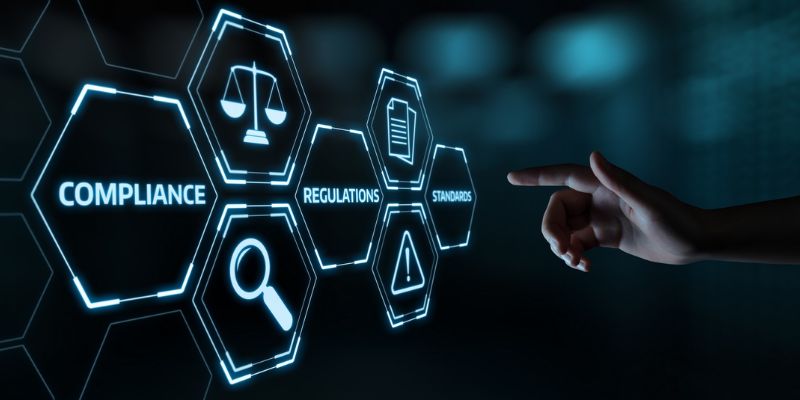Navigating the New Normal: Current Global Trends in Digital Platform Regulation
The digital world is shifting. As an expert peeking behind the curtain, I’ve seen firsthand how countries are stepping up their game. They’re not just watching the digital playground anymore. They’re jumping in to set some ground rules. And that raises a big question: What are the global trends in digital platform regulation? From the giants of tech to the data we all share, new policies are coming to life. They aim to keep the tech titans in check while making sure our personal info stays safe. It’s a tricky path to walk, balancing fresh rules without snuffing out innovation’s spark. But with the right steps, we can protect our rights and still let digital wonders flourish. So, let’s dive into this rapidly evolving landscape and explore how the latest regulations are reshaping our online experiences.
The Evolution of Digital Platform Governance
Adapting Antitrust Laws for Tech Titans
We’re seeing big changes in how we control tech giants today. Old rules don’t fit the fast pace of our internet world. To stop a few big companies from owning it all, we need new antitrust laws. This keeps the online market fair for everyone.
Countries are like players in a game, each with their own playbook. But now, they’re coming together. At times, it feels like they’re learning a new sport. They’re tweaking old rules to tackle the power of tech titans. They want to make sure no company can push others out of the way.
For example, antitrust laws in the US are getting sharper teeth. They’re built to make sure companies play fair. No more pushing out the little guy; no more owning a whole market. Europe has a close eye on this too. They’re all about fair play in their Digital Markets Act.
Reinforcing Data Protection Through International Collaboration
Data is like gold in our digital world. The more we share online, the more we need to protect it. Countries worldwide are joining hands for this. They know that together, they’re stronger. They’re creating rules to keep our online lives safe.
Data protection laws are a big deal. Think of them as guards, keeping our personal info safe. The General Data Protection Regulation, or GDPR, is a tough guard in Europe. It has set a high bar for privacy. It makes sure companies treat our data with respect.
But data does not stop at borders. It goes everywhere. So, countries must work across lines on the map to protect it. This kind of teamwork can be tough, but it’s worth it. Sharing ideas and rules can help make the web a safer place for everyone.
Collaboration helps with making sense of how data moves, too. One country’s laws may not work in another. But if they talk and work together, they can find common ground. This makes going online safer for people everywhere.
In short, we need smart rules for our new digital life. And the world is working on it – together. This helps keep the internet fair, fun, and safe for all.

The Fine Balance of Policy and Innovation
Formulating Robust Privacy Frameworks
We see big changes in how we protect our online selves. New privacy frameworks pop up around the globe. They aim to guard our personal info better. Europe’s GDPR led the charge. Now, others follow with their own rules. These laws mean that when a company has our data, they must keep it safe. They must tell us how they use it. If they mess up, they face big fines. This helps us trust the digital world more.
Encouraging Ethical AI Deployment and Regulation
Kids, imagine if your toys learned from you. That’s like AI, but AI can be scary too. Some fear it might take over jobs or be used the wrong way. So now, countries craft rules to make sure AI is safe and fair. They want to make sure AI helps us, not harms us. This means tech giants must play by the rules. They must show that their AI is fair. They must prove they’re not just out to make a buck. This is a big step as we use more AI in our lives.
The dance between keeping things safe and pushing new ideas forward is tricky. But get this right, and we all win. We get cool new tech that we can trust. That’s a future worth building, don’t you think?
The Interplay of Content, Commerce, and Taxation
Moderating Online Content While Protecting Speech
Let’s talk rules and freedom. We all want to speak our minds online. But, we don’t want lies or hate speech around. So the big question is: How do we keep the web clean and our speech free? We make rules that balance both.
Governments and big tech companies work on this. They look at how people talk on social media. Then they decide what’s okay and what’s not. It’s a tough job. They must respect free speech. At the same time, they must keep lies and hate away. We need clear rules and a fair system that listens when we say, “Hey, that’s not right!”
Here’s an example. You post a joke on social media. Someone finds it mean. They report it. The company checks it. If it’s really mean, they might take it down. But what if it’s just a joke? You should be able to say, “I didn’t mean harm.” They should check again. That’s a rule we could have. It helps everyone speak freely but keeps hurtful stuff away.
We’re all in this together. Each of us plays a part in making the web a nicer place. While doing that, we make sure everyone can still have their say.

Navigating E-commerce Oversight and Cross-Border Taxation
Now, let’s dive into shopping online. I bet most of us love it. But who makes sure we’re safe when we click “Buy”? There are rules for this too. These rules make online shopping safe and fair. They watch over huge e-commerce sites, to protect us, the shoppers.
When you buy something from another country, it gets tricky. Each country wants a share of the taxes. That’s fair, right? But this can make things complicated. So, what happens? Countries work together. They make deals. This way, they share the tax money. They try to make it painless for us, the buyers.
Businesses face a tough time too. They need to understand all these complex tax rules. Otherwise, they could get in big trouble. Imagine you start a small shop online. Suddenly, you sell a cool gadget to someone far away. Now you need to know their country’s tax rules too. It’s not easy.
We need smart ways to handle these taxes. They should be simple enough for small shops to follow. At the same time, they must make sure countries get their fair share. It’s a tricky balance. But get this right, and we all win. Shops can sell more, and we get cool stuff from all over the world.
So there you have it. The web is a big place with lots of rules. We’re trying to make these rules work for everyone. It’s a dance of words, markets, and taxes. And the tune we’re dancing to? It’s all about making the digital world safe, fair, and free for all of us.
Platform Responsibility and User Rights in the Spotlight
Enhancing Accountability and Combating Misinformation
In our world, telling true from false online can be hard. Big sites must now help. They face rules to block lies and harmful posts. But how? They check facts. They tag fake news. They also show why they remove stuff. Now, if bad info is spread, they must act fast. This protects us all.
New laws aim to stop lies but keep free talk alive. It’s tough but needed. Sites use smart tech to find lies. They also use teams that know about fact-checks. Some worry though. They ask, “Can free speech stay safe?” We say, “Yes.” With good rules and clear talk, both can work together.
Ensuring Fair Market Access and Protecting Consumer Interests
Market rules are changing for the digital world. Now, everyone should get a fair chance online. This means watching over big tech businesses. It’s not simple, though. Shops on the web must play fair too. There are rules for this. These rules make sure no single shop controls it all.
Consumers, like you and me, must be safe when we buy online. New laws help with this. They make sure ads tell the truth. They also make sure things we buy are safe. If things go wrong, it’s easier to get help or a refund now.
Different places have their own rules. Yet, they aim to do the same thing. That’s to keep things fair and safe for us all. When tech companies follow the rules, we win. We get more choices and better stuff. That’s why these rules matter. They let good ideas grow. And they keep the web open for all.
We’ve walked through how digital platform governance is changing. From antitrust laws to data rules, we aim to keep tech giants in check. We’re building strong privacy plans and making sure AI plays fair. We’ve looked at how to handle online talk, sell stuff safely, and deal with taxes. And we’ve talked about how to hold platforms responsible and keep your rights safe.
We live in a world where tech touches everything. As an expert, I believe we can find a sweet spot. We can set smart rules that protect you without stopping new ideas from growing. By keeping platforms in line and making sure your data is safe, we aim for a better, fairer internet. Our goal is for you to trust the digital world as much as you use it. And remember, every click counts. Let’s make them all count for good.

Q&A :
What is prompting changes in global digital platform regulations?
With the continuous evolution of digital platforms, a range of issues such as data privacy, consumer protection, and antitrust concerns are pushing governments worldwide to implement new regulations. This surge is also a response to the growing influence of tech giants on the economy, politics, and society. Legislators aim to ensure fair competition, protect users’ rights, and prevent the misuse of personal data.
How are different countries approaching digital platform regulation?
Countries are taking various approaches to digital platform regulation based on their unique legal frameworks and policy objectives. In the European Union, comprehensive measures like the General Data Protection Regulation (GDPR) set strict guidelines for data handling. Meanwhile, the United States is approaching regulation with a focus on antitrust laws and individual states’ data privacy laws like the California Consumer Privacy Act (CCPA). China, on the other hand, is enforcing tougher restrictions on domestic tech companies for data security and censorship purposes.
What impact does digital platform regulation have on businesses?
Digital platform regulation can significantly impact businesses by requiring changes in operations, particularly concerning data management, advertising practices, and content moderation. These regulations can lead to increased compliance costs and necessitate updates in policies and systems. However, they also encourage transparency and could enhance user trust, potentially benefiting businesses committed to ethical practices.
Are there any global standards or frameworks for digital platform regulation?
While there is currently no single global standard for digital platform regulation, various international organizations such as the OECD and the G20 have put forth principles and guidelines to align efforts across borders. These include recommendations on promoting competition, protecting privacy, and fostering digital economy growth. The United Nations has also emphasized the need for consistent regulatory approaches to harness the benefits of the digital age while safeguarding human rights.
How does digital platform regulation affect user experience and privacy?
Digital platform regulation generally aims to enhance user experience by ensuring greater transparency and control over personal data. Regulations like GDPR give users the right to access, correct, and delete their data, as well as the power to consent to data processing. While this can create a more secure online environment, some regulations might complicate the user experience with frequent consent prompts or reduced service functionality due to companies’ efforts to limit their liability.

